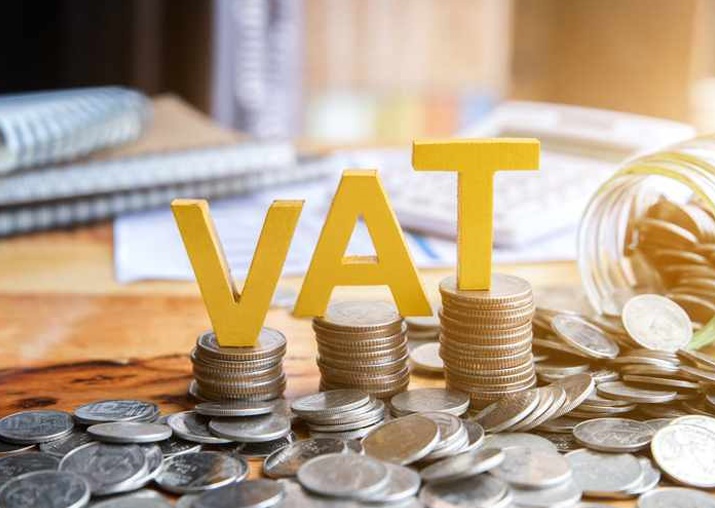
The government has, for the first time since the recession in 2008, collected less VAT, despite the 1 percentage point hike that came into effect in April last year, setting the VAT rate from 14% to 15%.
Experts believe the revenue collection target of R1.422 trillion may have to be reduced by between R30 billion and R50 billion during next month’s medium-term budget policy statement, as a result of lower-than-expected company tax and VAT collection.
This revenue shortfall is likely to place significant pressure on Finance Minister Tito Mboweni to generate a practical and realistic turnaround plan for the economy.
Kyle Mandy, a partner and technical head of tax at PwC SA, said it was difficult to make accurate predictions because figures from only four months of the financial year (April to July) were currently available.
Still, he said, he expected that estimated revenue would be adjusted downward by between R30 billion and R45 billion.
Company taxes would constitute the majority of the figure, with an estimated R20 billion less revenue, R5 billion less VAT, R3 billion less personal revenue, and the rest constituting other forms of taxation, such as customs and the fuel price levy.
Economist Mike Schüssler wrote last week that according to his calculations, government’s VAT revenue would decline for the first time since the financial crisis in 2008/09 in nominal terms (without adjusting for inflation).
VAT revenue for the 2019/20 financial year is estimated at R360.4 billion. In the four months to July, about R101 billion had been collected.
TSA Revenue Service (Sars) commissioner Edward Kieswetter told Parliament’s portfolio committee on finance that the revenue agency had made an additional R30 billion in VAT repayments.
The additional repayments came after Sars did away with a monthly VAT repayment target from October 2018 onward.
This target had limited total repayments to a fixed amount every month.
Kieswetter said that now, when repayments were due, they were paid out irrespective of whether the target had been exceeded.
PwC predicts that VAT revenue for the 2019/20 financial year will be about R5 billion lower than the amount budgeted for (R360.4 billion), but will still be 9% more than the R324.7 billion collected in 2018/19.
Kieswetter told the committee that the unnecessary retention of VAT repayments had serious consequences for the economy, and especially for scores of small businesses.
Tertius Troost, tax manager at Mazars, said the additional repayments were not a problem because this money would go back into the economy.
Although Troost predicted that VAT collection would be lower than expected, he ascribed this to a struggling economy and to companies under pressure, which were therefore paying lower salary increases and bonuses.
If consumers have less money to spend, this affects VAT revenue.
Sars came under fire for the delays in VAT repayments during the tenure of former commissioner Tom Moyane.
Troost said the biggest problem with the delays under Moyane was that Treasury used the collection figures to estimate what the state’s revenue in the following year would be.
Treasury therefore made use of unreliable, tainted figures and consequently produced inaccurate estimates, said Troost.
“This placed additional pressure on Sars to try to collect the budgeted amount.”
Troost estimates a shortfall of R50 billion on the collection target that was set during the February budget.
Last year’s VAT rate increase from 14% to 15% was the first since 1994.
Treasury had estimated that the 1 percentage point hike would bring in R23 billion a year in additional revenue for the state.
Given this, the additional R30 billion needed to erase the backlog in VAT repayments largely neutralises the R23 billion in additional VAT revenue.
Mandy said it was true that VAT revenue for the four months to July was lower, in nominal terms, than for the corresponding period in 2018, but said various factors had to be taken into account.
The increase in VAT repayments compared with 2018 played a role.
Domestic VAT had grown at 6.2%, compared with the budgeted 7.3%, while VAT on imported goods had grown at 10.4%, compared with the budgeted 7%.
Nevertheless, VAT repayments are about R15 billion more (23.8%) than they were in 2018.
This has wiped out the additional revenue from the increased VAT rate and has led to a net decline in VAT revenue.
Mandy pointed out that VAT repayments in the corresponding period in 2018 were abnormally low.
The situation was now being normalised, he said, as Sars was working hard to wipe out the backlog on its credit book.
PwC estimates that the credit book was reduced to R24 billion by July, against a target of R22 billion.
Read: ‘Corruption, exodus of skilled staff’ – Sars is still reeling from Moyane’s legacy
Mandy said that despite the significant increase in VAT repayments for the year to date, these repayments appeared to be in line with budgetary predictions.
Troost said that even if the expected increase in VAT revenue was neutralised by the repayments, the step still made sense because it was part of the process of restoring confidence in Sars.
“The fact is, by withholding VAT, Sars had in previous years given an inflated report of its revenue and Treasury had underbudgeted for the actual amount of VAT which was paid back. This elimination of R22.9 billion in additional VAT revenue that was budgeted for is the cost of solving the problem.”
Kieswetter said that systemic problems that were preventing VAT due had to be corrected.
To ensure smooth VAT repayment, Sars had adjusted its risk parameters to minimise repeat audits of businesses complying with their obligations.
This had led to an average of 30% fewer audit cases being opened, which further contributed to the timely repayments businesses were entitled to, he said.




 Publications
Publications
 Partners
Partners








